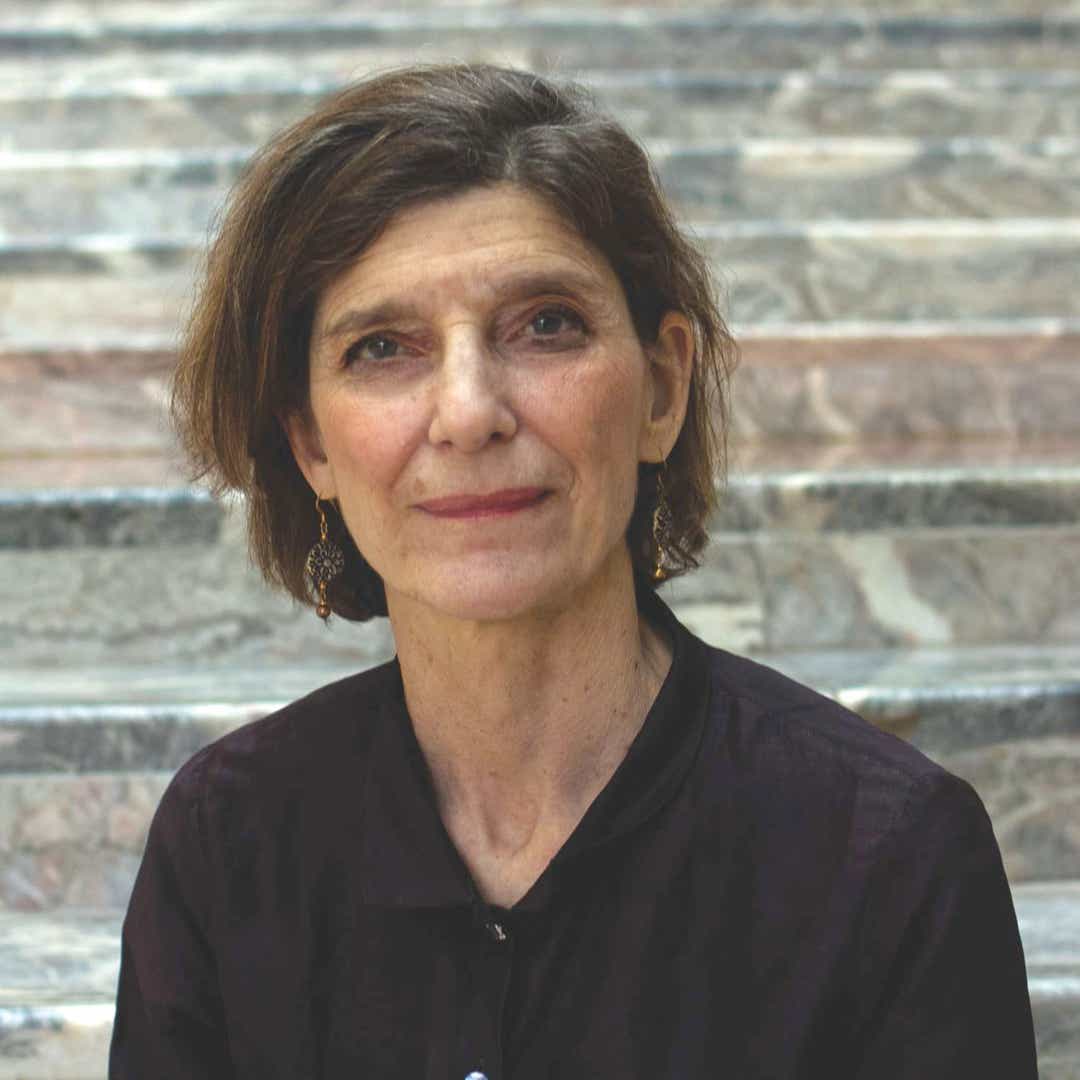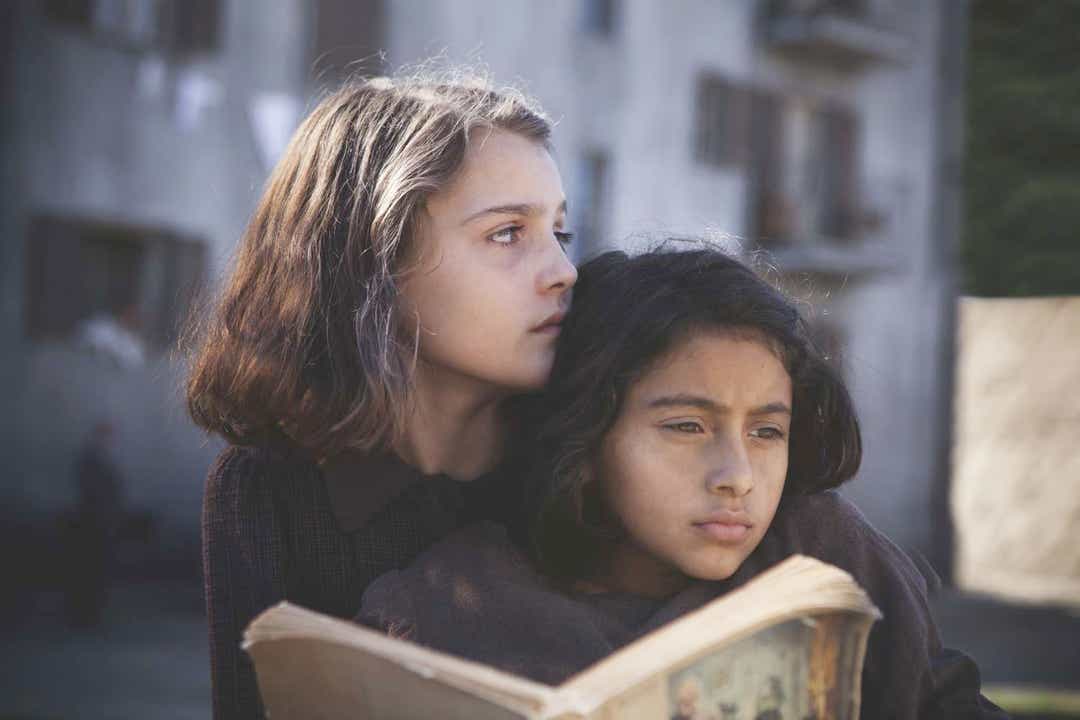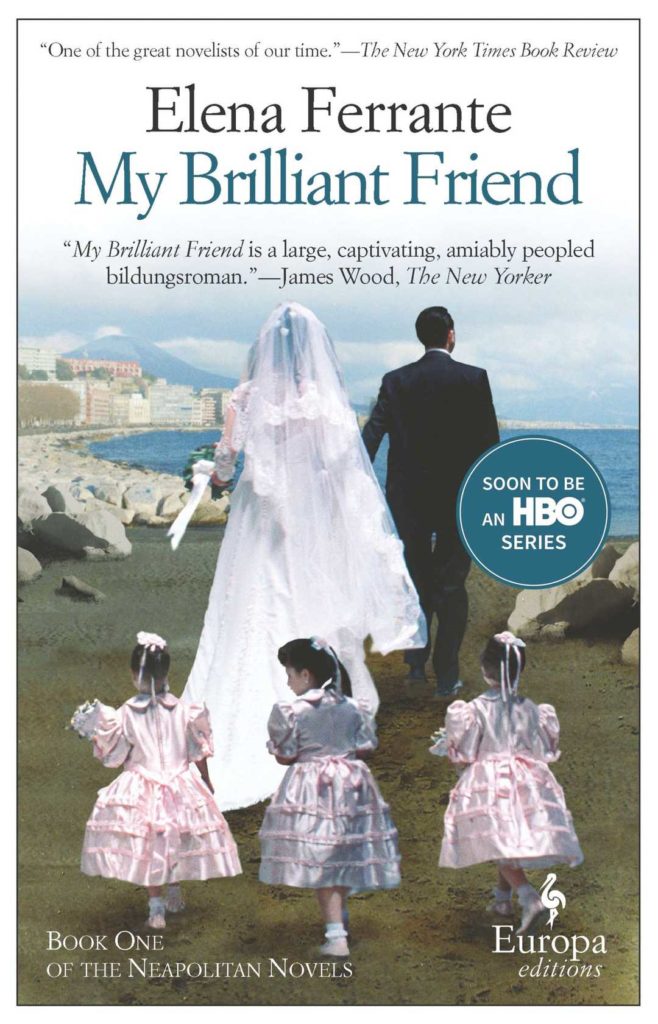Ann Goldstein has been called a publishing celebrity whose “name on a book is now gold.” Praise like that would thrill any writer — which makes the accolades even more impressive, since, as readers of Primo Levi, Pope John Paul II, Pier Paulo Pasolini and Elena Ferrante know, Goldstein is not an author, but a translator of Italian.
The Maplewood native’s name has become even more well-known since her English translation of Ferrante’s international bestseller, My Brilliant Friend, has sold more than 2 million copies in the U.S. to date. The novel, which is the first of four in the so-called Neapolitan Quartet, tells the story of childhood friends Elena and Lila, whose intertwined lives unfold in Naples against a backdrop of violence and intrigue. Now that a filmed version premieres 9 p.m., Nov. 18 on HBO, we spoke to Goldstein about how she conveys the thoughts of great artists — including Ferrante, who is famously anonymous, and whom she’s never met — to their devoted readers.

WHAT ATTRACTED YOU TO LEARNING FOREIGN LANGUAGES, AND WHICH WAS THE FIRST ONE YOU STUDIED?
The first foreign language I studied was French. A woman taught it in her house in Maplewood, and I went with my sister and a friend. I took Latin in grade school at Far Brook [a private school in Short Hills] and took a class in Dante. I took the same college class on Dante twice because I wanted to read him in Italian.
WHAT ATTRACTED YOU TO THE ITALIAN LANGUAGE IN PARTICULAR?
It appealed to me because of Dante. On one level, you can read him as a poem about searching, and in my 20’s, I was at an age when you’re searching and trying to understand life. The teacher I had emphasized that reading Dante is a way of looking into yourself and taking a journey.
YOU WERE A SENIOR EDITOR AT THE NEW YORKER MAGAZINE, AND RAN ITS COPY DESK FOR THREE DECADES. IS IT TRUE THAT YOU AND YOUR COLLEAGUES TOOK ITALIAN LESSONS IN THE OFFICE?
Yes. My friend, the comma queen [Mary Norris, author of Between You and Me: Confessions of a Comma Queen], was studying Greek at Columbia University, and her classmate was a daughter of an Italian professor there. In those days, companies often paid for classes, especially language classes, with the idea that anything else you did was good for you as a worker. For seven years in a weekly after-work class that was about an hour long, seven or eight of us learned to read the whole Divine Comedy together.

WHAT QUALITIES ARE MOST IMPORTANT IN AN EFFECTIVE TRANSLATOR, ESPECIALLY OF FICTION?
One thing people often neglect is that you have to be a good writer in your own language, too. There are similarities between translating and copyediting: You need a close reading in a language sense.
DO YOU SEE A TREND TOWARDS PUBLISHING MORE EUROPEAN WORKS WORLDWIDE, AND IF SO, WHAT DO YOU THINK THIS IS DUE TO?
I think that in the past few years, there’s been more interest in translated books. But the Ferrante phenomenon is a combination of the books and the author being anonymous, so it’s made the translator more visible. And I think people should be reminded that there is a translator, just in general. Critics will quote huge passages without saying this is the translator’s version of the writer. The translator didn’t write the book, but this is the medium through which you’re reading the book. Translations have been a niche, whereas they should be part of the general population.

FERRANTE’S CHARACTERS OFTEN SPEAK IN A NEAPOLITAN DIALECT. IF YOU HEARD IT BEING SPOKEN, WOULD YOU UNDERSTAND IT?
I wouldn’t be able to understand it. Many Italians don’t understand it. The HBO series, which is subtitled, was shot in Neapolitan when the kids are little, with their families and in the neighborhood. When they showed the first two episodes in Italian movie theaters, they had subtitles in Italian.
IN THE NEAPOLITAN QUARTET, THERE’S A LOT OF TALK ABOUT “SUFFERING.” COULD YOU TALK ABOUT HOW SENTIMENTS LIKE THAT MIGHT DIFFER BETWEEN CULTURES?
I don’t think words like that are necessarily cultural. People think Italians are operatic, but I don’t think that about those books. The language is very beautiful, very appealing to me. People speak with a certain amount of drama. Ferrante does examine the forms of suffering and emotions in a way that’s been described as “forensic.”
IS IT TRUE THAT YOU’VE NEVER MET HER IN PERSON?
I’ve never met her. I don’t want to know her identity. If she doesn’t want to be known, I don’t want to know her.
WHAT ARE YOUR IMPRESSIONS OF THE HBO VERSION OF MY BRILLIANT FRIEND?
I didn’t write the subtitles, but I edited the English subtitles. The first time I saw the series, it was on a computer, watching every scene six times to check them. But then, seeing it on a big movie screen was much better. The actresses who play the little girls are amazing, they carry the whole thing. It’s a TV series made from a book. You get immediately drawn in, but it’s a different medium; it’s good on its own terms. I thought that if you haven’t read it, you might find the first episode confusing, but then I talked to a guy who saw them and didn’t think it was confusing. There are lots of characters and plot lines.
DO YOU HAVE MANY MEMORIES OF GROWING UP IN MAPLEWOOD?
I went to Far Brook and then boarding school, but I had neighborhood friends, and my father grew up in Maplewood. We used to play in the reservation across the street. We never called it South Mountain Reservation. It was just “The Reservation.”

